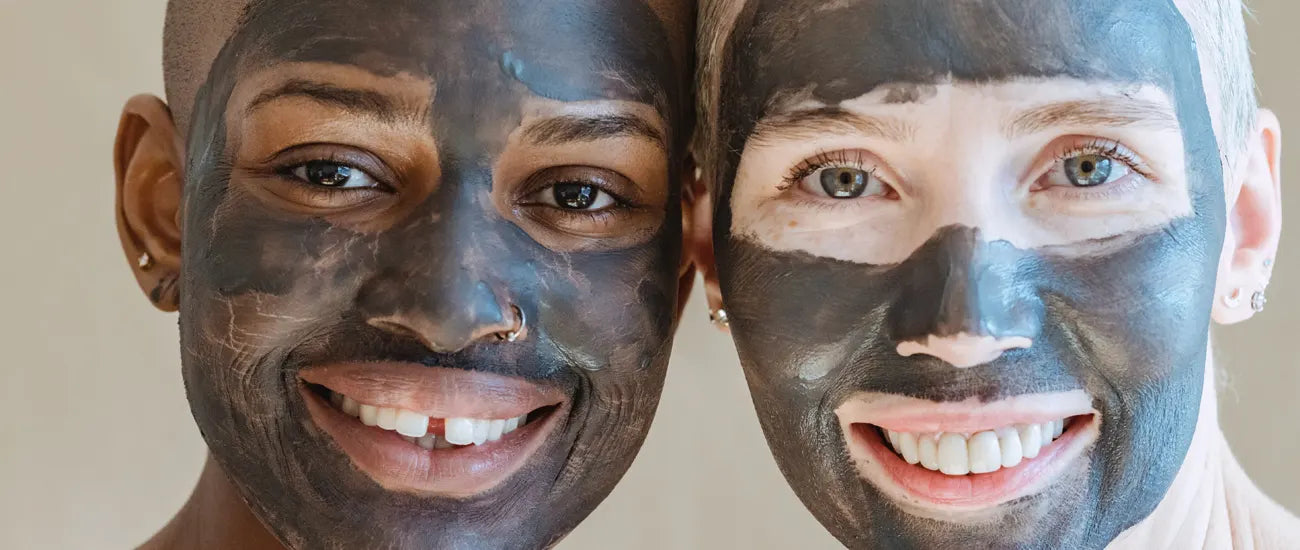La sorprendente realidad acerca del bakuchiol falso: efectos secundarios y cómo evitarlos
Carol MillerShare
Beneficios científicamente comprobados del bakuchiol verdadero
La eficacia del bakuchiol en el cuidado de la piel está bien documentada a través de varios estudios científicos. Las investigaciones publicadas en revistas de prestigio como International Journal of Cosmetic Science y Journal of Cosmetic Dermatology destacan sus múltiples beneficios para la piel:
- Antienvejecimiento: Se ha demostrado que el bakuchiol reduce significativamente la aparición de líneas finas y arrugas al estimular la producción de colágeno. En un estudio de 12 semanas, mostró una reducción del 20 % en la profundidad de las arrugas.
- Hiperpigmentación: reducción del 59% en la hiperpigmentación después de 12 semanas para Sytenol® A Bakuchiol, mientras que fue del 44% para Retinol.
- Propiedades antioxidantes: Ofrece protección contra el estrés oxidativo y los daños causados por la radiación UV y los contaminantes ambientales.
- Iluminador de la piel: el bakuchiol ayuda a disminuir los signos visibles del daño solar y la hiperpigmentación, promoviendo un tono de piel más uniforme.
- Tratamiento del acné: Sus propiedades antiinflamatorias y antibacterianas hacen que el bakuchiol sea eficaz para controlar el acné sin resecar la piel, como se detalla en un estudio sobre su impacto en la piel afectada por el acné.
Riesgos de los productos con Bakuchiol falsificados y fraudulentos
Lamentablemente, el aumento de la popularidad del bakuchiol ha provocado un aumento de productos falsificados e imitaciones en el mercado. Estos productos fraudulentos a menudo contienen ingredientes derivados de calidad inferior o incorrectos, que no solo no brindan los beneficios deseados para la piel, sino que también pueden presentar riesgos como irritación cutánea o reacciones alérgicas.
P. corylifolia no solo contiene la molécula de bakuchiol, sino también los componentes fototóxicos de la planta Babchi, psoralenos e isopsoralenos, lo que aumenta el potencial de efectos relacionados con la radiación ultravioleta cuando estos componentes no se eliminan. La presencia de psoralenos e isopsoralenos aumentará la fotosensibilidad cuando se aplican tópicamente. La presencia de psoralenos puede tener efectos no deseados al causar fotosensibilidad basada en psoralenos.
Las hojas, raíces y tallos de P. corylifolia contienen furocumarinas. Una propiedad bien conocida de las furocumarinas cuando se exponen a los rayos UV es que provocan diversos niveles de eritema (enrojecimiento de la piel), pigmentación (manchas oscuras) y daño en la piel .
Los aislados purificados del meroterpeno bakuchiol presente en P. corylifolia son el único componente beneficioso de esta planta cuando se trata del cuidado de la piel.
Cómo identificar productos con Bakuchiol genuinos
Para garantizar la seguridad y eficacia, los consumidores deben adquirir productos de bakuchiol de fuentes confiables. Las fórmulas auténticas de bakuchiol suelen estar respaldadas por investigaciones científicas y una etiqueta clara del ingrediente con su nombre INCI "bakuchiol" en la parte posterior de la etiqueta.
- Consulte la lista de ingredientes: los productos genuinos que contienen bakuchiol incluirán el ingrediente por su nombre INCI "Bakuchiol" como ingrediente en la parte posterior de la etiqueta. Tenga cuidado con los productos que utilizan términos vagos como "extracto de planta Babchi" o "aceite de Bakuchi", ya que pueden indicar una menor pureza y mayores riesgos de efectos secundarios.
- Comprenda las falsificaciones más comunes y sus efectos:
- - Bakuchiol puro: puede causar un ligero enrojecimiento al principio, pero generalmente es seguro para el uso habitual. Los productos con este ingrediente van desde sueros de aceite hasta lociones y cremas, pero nunca un suero a base de agua o acuoso, ya que el bakuchiol no se disuelve en agua. Este aceite tiene el potencial de teñir la fórmula de un color amarillo, dorado o naranja sin la necesidad de colorantes sintéticos o artificiales. Los productos que contienen este ingrediente y muestran cualquier otro color contendrían colorantes sintéticos o artificiales en sus fórmulas.
- Bakuchiol menos puro: Esté atento a los signos de dermatitis de contacto o fotosensibilidad, que son comunes con las formas impuras. Lamentablemente, varias empresas han comenzado a producir el ingrediente bakuchiol sin purificarlo, lo que produce un meroterpeno que no está purificado y contiene compuestos dañinos.
- Extracto de planta y planta entera de P. corylifolia (Babchi): a menudo se los etiqueta de forma engañosa como bakuchiol, pero pueden causar fotosensibilidad grave, eritema y ampollas. Aparecen en el mercado generalmente en forma de sueros acuosos (a base de agua) de color púrpura, azul, rosa e incluso verde. Debido a la naturaleza hidrofóbica del bakuchiol real, estos productos seguramente no contienen el meroterpeno de bakuchiol real y deben evitarse.
- Aceite de Bakuchi/Babchi: Un aceite de calidad alimentaria que se utiliza principalmente en preparaciones culinarias extraído de las semillas de la planta. Se sabe que este derivado causa fitofotodermatitis, una reacción fototóxica que puede provocar erupciones dolorosas y ampollas en la piel. Se comercializan a un precio moderado o económico, en forma de aceites, lociones y cremas de color marrón oscuro o ámbar, a diferencia de los productos que contienen bakuchiol real, cuyo precio es más elevado porque este ingrediente no es barato.
- Compra de fuentes confiables: compra siempre productos para el cuidado de la piel de empresas confiables que proporcionen información transparente sobre el origen de los ingredientes, los niveles de concentración y las prácticas de fabricación. Los productores de este costoso ingrediente han incluido una lista de vendedores confiables en su sitio web bakuchiol.net , que, aunque no está completa, es un buen punto de partida.
- En caso de duda: consulte con los únicos productores de este ingrediente, una empresa llamada Sytheon, o visite su sitio web bakuchiol.net . Han probado y promocionado las empresas que elaboran fórmulas con su ingrediente, y han descubierto a empresas que han engañado a los consumidores con fórmulas que no contienen el ingrediente bakuchiol real y que incluyen algunas de las falsas.
La transparencia en los procesos de abastecimiento y fabricación también es un sello distintivo de las marcas confiables.
El bakuchiol se destaca como un ingrediente revolucionario en el ámbito del cuidado de la piel, ya que ofrece una alternativa vegetal al retinol con una multitud de beneficios comprobados para la piel. A medida que crece el interés por las soluciones naturales y efectivas para el cuidado de la piel, el papel del bakuchiol se reconoce cada vez más como esencial. Sin embargo, la vigilancia contra los productos falsificados y las imitaciones es crucial para los consumidores que buscan integrar el bakuchiol en sus rutinas de cuidado de la piel de forma segura.








